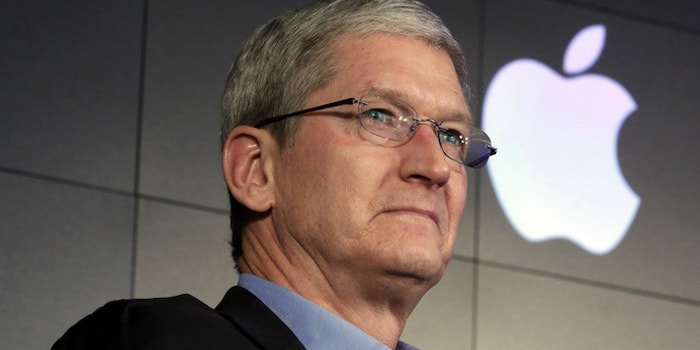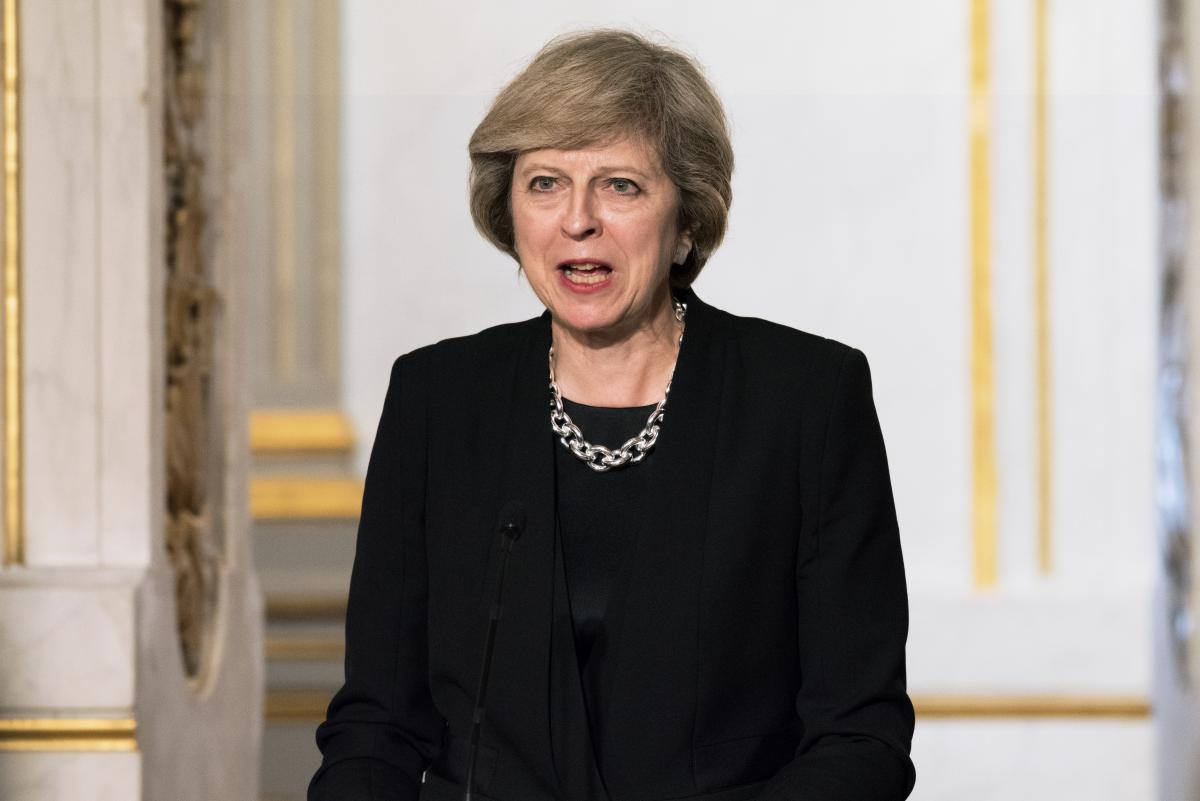Amidst high-profile scandals such as Wells Fargo and Apple’s unpaid tax, there is a counter-trend of asset managers relying on environmental social governance
Corporate governance – the very name is yawn-inducing. It’s the nitty-gritty of running companies well and putting into place systems, both accounting and cultural, that help ensure long-term, trouble-free corporate success.
This year saw a number of high-profile governance failures on both sides of the Atlantic. The most recent is the Wells Fargo imbroglio, in which it was revealed that thousands of the global bank’s employees created fake accounts in order to fleece customers with fees. Employees were spurred by an internal incentive program created by management and with full knowledge of the CEO. The revelation has been a reputational disaster for Wells Fargo, and the company’s stock price has continued to decline despite the ‘retiring’ of the CEO, John Stumpf, in October.

The bank’s new CEO, Tim Sloan, has sought to reassure investors and employees on the company’s stability and prospects. However, in mid-November, the US Office of the Comptroller of the Currency, which regulates US banks, told Wells Fargo it was putting new restrictions on the company’s ability to hire top executives and issue “golden parachute’ dismissal payments. It also said it was reviewing any bank branch openings and closings – in effect, putting the company’s governance actions under a microscope. CNN reported that Wells Fargo’s new account openings plunged 44% in October after the fake accounts scandal was revealed.
As Pamela Gockley of the Reputatus group says in a recent video, Wells Fargo’s woes are deepening. The company is now being investigated for unfair mortgage practices by the US Justice Department, among others. Gockley says Wells Fargo has lost the basic trust of the consumer and is trying, through PR efforts, to fix it without addressing the internal problems. Gockley says the bigger problem is partly the lack of diversity in the top echelons of many corporations. This means a small group of mostly “wealthy white men” value self-protection over transparency and accountability. Brett Hickey of New York-based asset management firm Star Mountain Capital LLC agrees that diversity of boardrooms and the executive suite is part of what he looks for in mid-sized companies as a company’s insurance against stress. “Good governance is protection against hyper-distressed situations and ultimately against failure,” Hickey says. “I see stress as the enemy, and avoiding stress as part of building a positive business culture. Strong corporate governance is part of having a strong corporate culture that leads, I think, to a low level of business failures.”
Corporate tax havens
Earlier this year, another scandal erupted when the European Commission announced that it would try to collect more than $14bn from Apple in what the Commission deemed unfair tax advantages given to the electronics giant by Ireland. After a multi-year investigation concluded in November, the Commission decided to pursue collection of the unpaid taxes from Apple. Apple vowed to fight the action, and, paradoxically, Ireland also rejected the ruling, fearing that it might hurt its ability to attract future corporate investment. Apple’s tax sleight-of-hand hasn’t unduly tarnished the company’s brand or reputation much thus far, although its share price fell 3% in the weeks leading up to the ruling.

However, Apple’s situation does highlight US corporations’ stockpiling of billions of foreign earnings in tax havens through a process known as deferral. US president-elect Donald Trump has promised to lower the US corporate tax rate from 35% to 15% to try to keep more earnings at home and repatriate some of the foreign earnings. Analysts are sceptical that this move, or even a lower-tax “holiday”, would do much to get the $2.6tn piled overseas back into the US Treasury’s coffers.
Ric Marshall, executive director and senior corporate governance analyst for MSCI’s ESG research division, says: “Companies with lots of cash tucked away overseas aren’t hurting for investment capital. The real impact is that there is less money going into the Treasury, which means less money for the business of the US government – less money for defence, for social programmes, or for infrastructure.”
South Africa takes lead
One piece of positive corporate governance news this last year was the release in early November in South Africa of the King IV code. King IV is the fourth in a series of these governance codes, started in 1994, to advance good corporate citizenship amongst South African companies. While the King IV principles are voluntary, they will come into effect in the middle of 2017 and are expected to elevate good governance further in boardrooms. The Institute of Directors in Southern Africa (IoDSA) says King IV’s foundation stones are: ethical leadership, corporate citizenship, sustainable development, stakeholder inclusivity, integrated thinking and integrated reporting.
King IV is an outcomes-based system: rather than letting companies simply tick boxes, it asks companies to achieve the 16 principles set out in the code and also explain how they were achieved. A recent study by the Sustainability Accounting Standards Board found that while many corporations are disclosing social and environmental risk they are using vague language and not explaining in detail exactly how are responding to risk.
King IV addresses corporations’ profit shifting and tax avoidance head on, according to global management firm Deloitte, by asking corporate boards to strike an important balance between aggressive tax strategies (like the type Apple pursued in Ireland) and shareholders’ expectations that tax costs are kept to a reasonable amount.
Johan Erasmus, director of the Deloitte SA Audit Technical team in Johannesburg, says King IV is globally significant because it has “elevated governance principles to a higher level”. King IV’s code may even have some impact on executive pay, because it directs companies to remunerate “fairly, responsibly, and transparently”, proposing that two company shareholders have a non-binding but advisory vote on pay policies.
Theresa May moves the needle
In the UK, the Institute of Business Ethics this year went so far as to recommend that cash be the sole currency for executive pay (instead of stock shares or options), while executive directors should, IBE says, also be required to use a portion of this cash salary to buy company shares and hold them for the long term, even after leaving the company. IBE had a further novel recommendation: that when bonuses paid to executive directors exceed a given proportion, say 25% of salary, all of a company’s employees should be automatically eligible for a bonus in the same proportion of salary as paid to the chief executive.
The new prime minister, Theresa May, flagged up corporate governance and fair taxation as priorities in her very first speech in July, promising to “make Britain a country that works not for a privileged few, but for every one of us”. In November, she followed up by publishing a green paper with proposals to reform the 2006 Companies Act to address, in particular, the yawning pay gap between executives and ordinary workers, though as GoodCorporation’s Michael Littlechild argued, the reforms will likely do little to shake up the C-suite.
There was other progress this year. A large group of financial companies led by Jamie Dimon, chief executive officer of JPMorgan Chase, created the Commonsense Principles of Governance; the World Economic Forum (WEF) released its vision of a new paradigm for corporate governance, including partnerships between companies and shareholders going forward; and the Business Roundtable updated its govenance principles.

Martin Lipton, a mergers lawyer and founding partner at Wachtell, Lipton, Rosen & Katz in New York, says there will be a spotlight on more responsibility for corporate boards in 2017. Lipton, who drafted the WEF’s document, says short-termism has had undue influence on companies and they should be concentrating on long-term sustainability strategies.
The MSCI’s Marshall says governance is now inescapably on the radar of asset managers and shareholders. While this has developed over years, Marshall says new communication channels have opened up between companies and shareholders that are unlikely to be shut down completely by a more freewheeling business climate under a Donald Trump administration, or as a result of the UK's Brexit vote. “We have observed considerable progress in effective engagement in communications between shareholders and companies,” Marshall says. While the new US administration may be talking about deregulation and rolling back on the 2010 Dodd-Frank reforms of financial regulation, Marshall added that Trump may not be able to take the business and investment communities with him.
This is issue 7 in our top 10 issues that shaped sustainability in 2016. For the full list, see here



